The annual Dragon Boat Festival (端午節), which traditionally marks the end of spring, is one of the three most important festivals of the year in traditional Chinese culture, along with Chinese New Year and the Mid-Autumn Festival (中秋節). The most exciting element of the celebrations are the thrilling and color-splashed dragon boat races, with competitions today held in cities across the globe. Despite the dragon boat race this year being postponed to the end of the year due to the COVID-19 outbreak, people still take to dragon boating as an excellent form of team-building, a way to build camaraderie, and a great chance to get to know the age-old tradition. (Read also: 6 Holidays in Taiwan You Should Know About)
Among all the dragon boat teams in Taipei, there is one standing out from the others. The BlackTide Dragon Boat Team (黑潮龍舟隊) is a foreign/local hybrid, founded by foreigners who have settled down in Taiwan for a time, with half its current 50 members from lands abroad such as the US, France, and Russia. The founders, who initially participated solely in the annual Taipei championships, relished dragon boating so much that they formed BlackTide so they could head out on the water year-round, for love of the sport. Co-founder Gael Lim, from France, recently talked with TAIPEI about dragon boating, BlackTide, and what’s required to be a dragon boater.
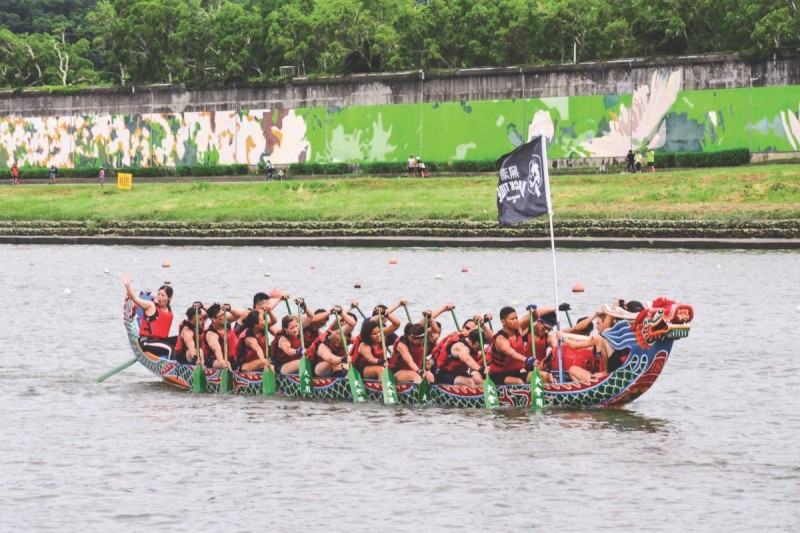
But first, a little history.
The Origins of Dragon Boat Festival
Staged for over two thousand years, dragon boat races have since their beginning been valued for their cultivation of a spirit of cooperation and mutual advancement, over time growing into serious competitions. It’s believed that the long, sleek dragon boats have their origins in ancient ritual ceremonies held to supplicate water gods to ward off flooding and other natural disasters. In one of many legend variants, the boats and races evolved from the practice of sending icons of the gods of pestilence out to sea on boats, in the hope that disease and other nefarious influences would be carried off with them.
It’s said the festival got its start during China’s Warring States Period (戰國時期 c. 475–221 B.C.). A loyal and upright minister of the State of Chu (楚國) named Qu Yuan (屈原), beloved by its citizens, drowned himself when distraught at the kingdom’s ruin and his inability to help his country. Locals hastily launched their fastest boats, beating drums and banging gongs to drive away fish and shrimp and also throwing rice- stuffed bamboo tubes into the water to feed them so that they would ignore Qu Yuan’s remains. In some stories, it’s said a dragon was seen flying down the river during the search.
As time has gone by, the original rice-filled tubes have been replaced with the custom of eating zongzi (粽子), a leaf-wrapped pyramid of glutinous rice; the racing of boats, beating of drums, and striking of gongs have been transformed into today’s dragon boat races, held in commemoration of an esteemed model for unselfish service. (Read also: Zongzi: Taiwan’s Tasty Answer to the Tamale)
The Taipei City government puts on the annual Taipei International Dragon Boat Championships, the largest and most popular dragon boat race in Taiwan. The event, however, has been postponed this year owing to the pandemic. It is usually comprised of, beyond the race itself, a series of activities, including a Dragon Boat Eye Dotting and River Blessing Ceremony, during which a Taoist priest brings boats to life by dotting the dragon eyes on their prows, and a Dragon Boat Experience Camp, a rowing try-out open to the public. (Read more: Everything You Need to Know about Dragon Boat Festival in Taiwan)

Behind the Scenes of Dragon Boat Racing
According to Gael Lim, Dragon boating is quite different from kayaking or canoeing. “First, there are more people involved. Paddler numbers vary depending on race rules and boat size. For example, the annual Taipei City and New Taipei City races that BlackTide signed up for require 18 and 16 paddlers respectively. The most common race distance is 500 meters, requiring about two minutes for top teams. The first boat to snatch its designated flag at the finish line wins. It’s that simple.”
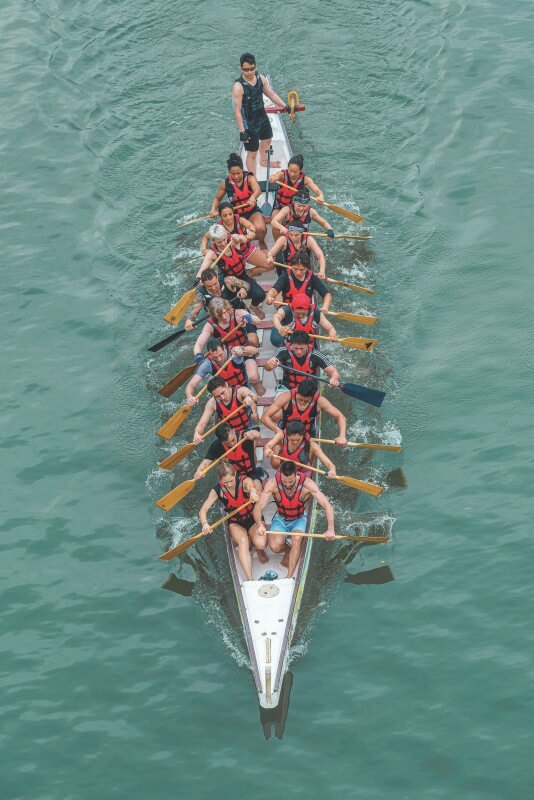
The beauty of dragon boating, Lim adds, is that each team member plays an important role. Teams cannot rely on a few strong individuals — everyone must play their part to win. “For instance, the steerer ensures the boat moves forward efficiently in a straight line. Straying from a lane might mean disqualification. The drummer sets the right rhythm to set the proper pace and help harmonize paddling. The two front paddlers — the ‘leads’ — must also synchronize with the drummer to set the right pace. Going too fast or too slow at the wrong point in time may be counterproductive and prevent victory.” As for the flag catcher, Lim thinks this is a high-pressure role because the only thing he/she does is snatch the flag to end the race. “Miss it, or fall overboard, and the race may be lost even if crossing the finish line first,” he adds. (Read also: Your Guide to Taipei’s Dragon Boat Festival)
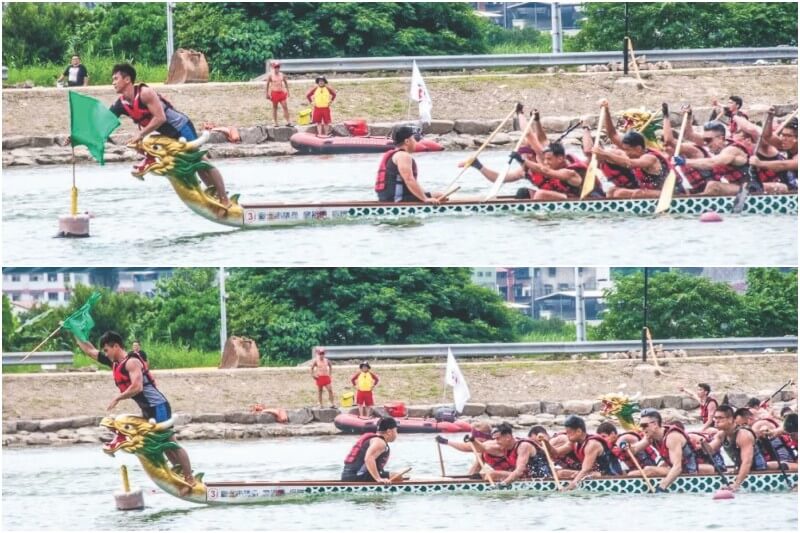
Ups and Downs on the Tides
Lim and three friends created the BlackTide Dragon Boat Team in 2015. They’d previously been part of the Chinese Language Center’s team, made up of foreign language students. “The Center’s boating was a once-a- year activity, but we wanted to do the sport we love year-round, paddling with our Taiwanese friends and foreign friends staying more permanently. We’re a diverse, co-ed team, with both students and working professionals. No professional athletes. We simply all enjoy working out and doing outdoor activities.”
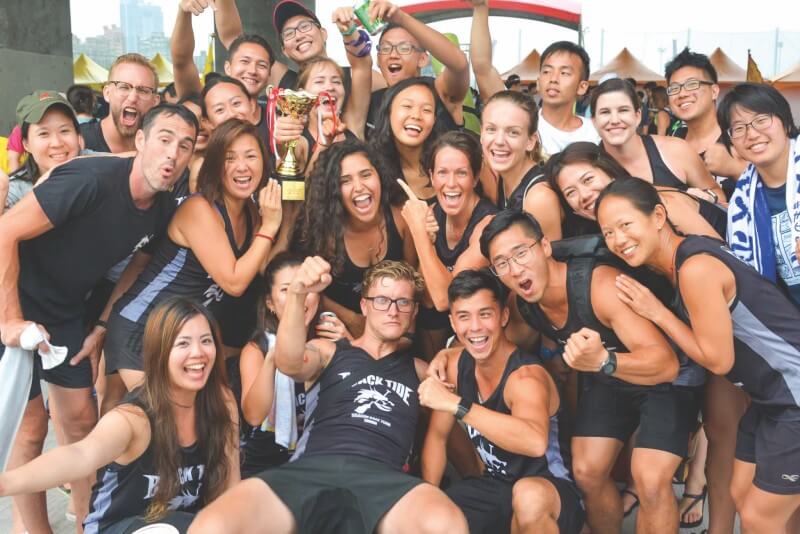
“We generally have two recruitment rounds annually,” Lim goes on. “Candidates must pass a fitness test and attend fitness and paddling training sessions. This lets people try the sport out and get to know the team, and both sides can better understand if they are a good team fit. We look for people who are physically active and, crucially, possess team spirit.”
“Training frequency varies,” he continues. “Professional teams train hard, but others just participate for fun. BlackTide has three sessions weekly, one on a weekday evening, improving stamina and strengthening muscle groups required for good paddling, and two others, on a weekday evening and Sunday morning (very early) — paddling techniques in one, stamina and synchronization by paddling longer distances in another.”
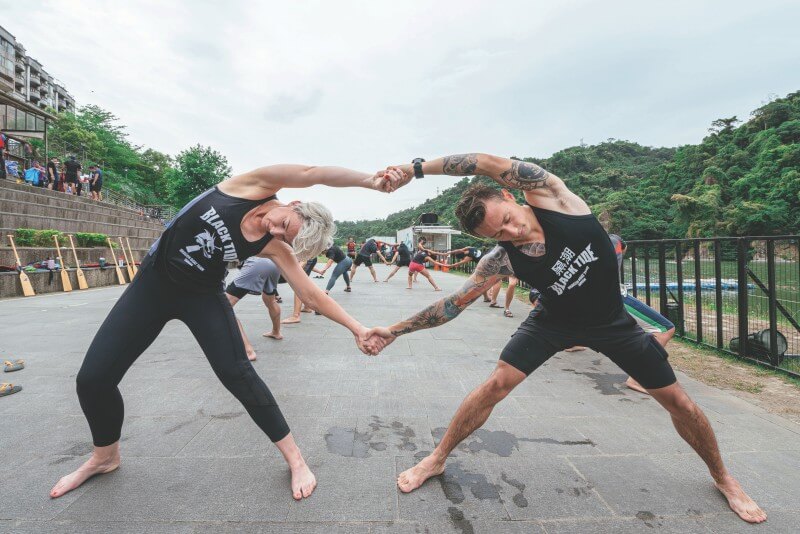
Asked about the most challenging component of training, Lim says that “Learning the paddling technique, or stroke, is definitely not easy. However, I’d say the hardest part is getting 16 or 18 individuals to paddle in perfect unison. Everyone’s paddle needs to enter, pull, and exit the water at the exact same time. This is key to becoming a good team, and requires much training with the full group.” (You might also like: Eight Taiwan Sporting Events Serious Athletes Need to Know About)
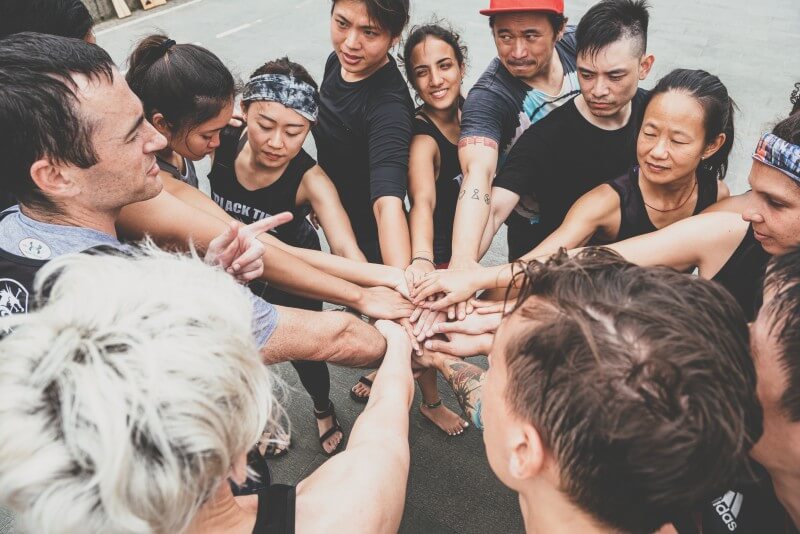
Your rewards for the sacrifices — lack of sleep, early mornings, training rain or shine, missing time with friends and family — are unforgettable memories and the forging of strong friendships. “I’d say some of the best memories are when you end up winning a race by a fraction as little as 0.1 second. Racing neck and neck with other teams for two minutes or more and pushing over your limit, yet not knowing if you’ve won or lost upon crossing the finish line. The sense of commitment and such shared experiences creates a very special bond amongst us, as the feelings experienced during these moments could be inexplicable to others.”
| JOINING BLACKTIDE |
| Those interested in dragon boating can contact BlackTide: E-MAIL: [email protected] (Lisa) WEBSITE: https://zh-cn.facebook.com/blacktidedragonboat/ |
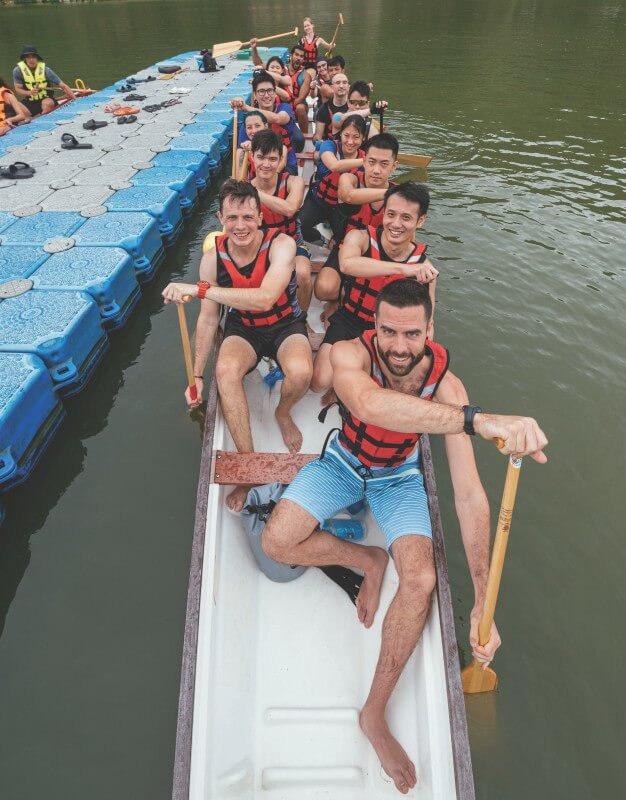
Author: Rick Charette
Photographer: Samil Kuo, Department of Sports, Taipei City Government, BlackTide
This article is reproduced under the permission of TAIPEI. Original content can be found on the website of Taipei Travel Net (www.travel.taipei/en).
More Sports to Enjoy in Taiwan
- Moving Mountains: An Australian Hiker Moves in Taipei
- Traditional Folk Acrobatics: Bringing Taipei to New Heights
- Breaking into the Mainstream: Meet the Spanish B-boy Helping to Grow Hip-hop Dance Culture in Taipei
- Go Deeper: A Guide to Diving in Taiwan
- The Taitung/Zhiben Region is a Rich Bounty of Scenic & Healthy Exercise Adventures



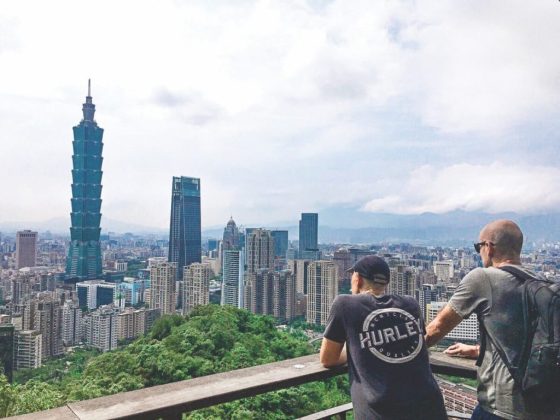









Comments are closed.